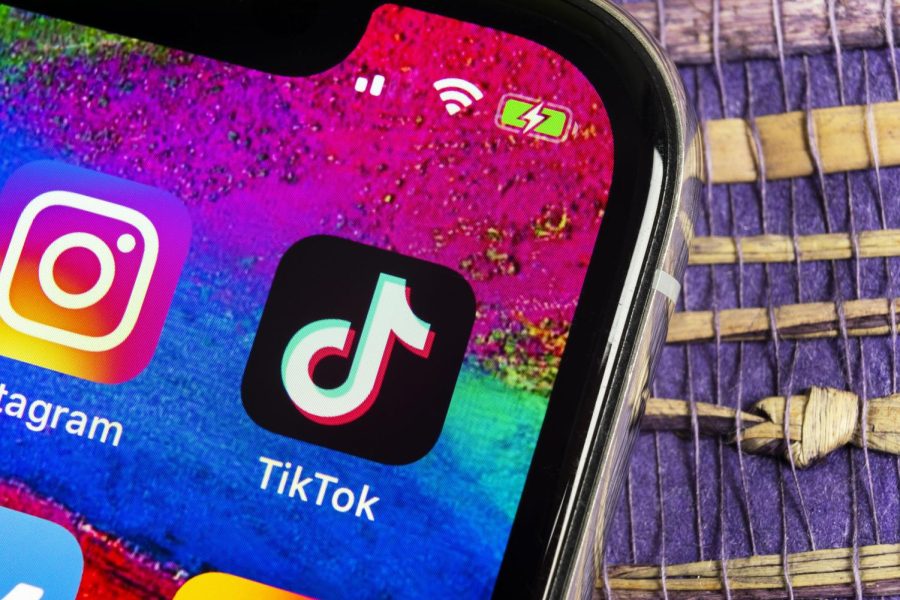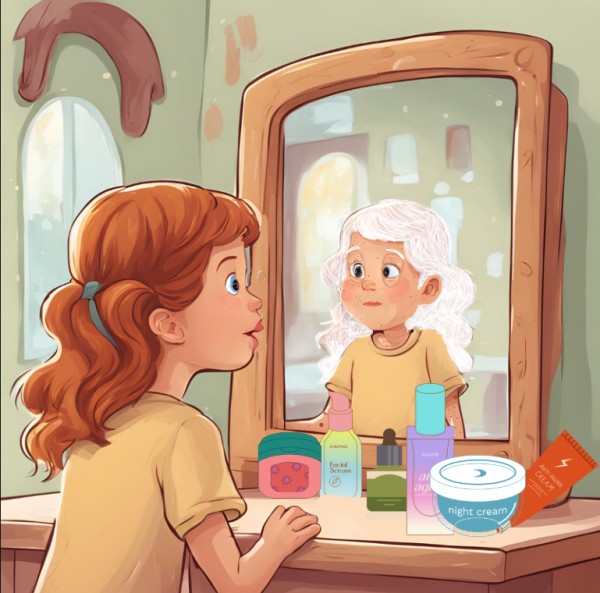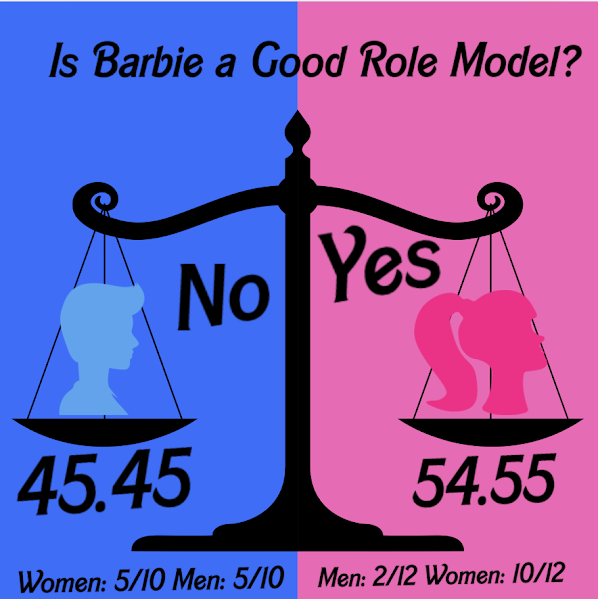Social Media Presents Risks to Pre-Teens
While the majority of social media applications, such as Instagram, Snapchat and TikTok all have an age-limit of 13, these rules are frequently broken, causing children who use these apps to be bombarded with inappropriate content.
Social media applications should begin to enforce their age-limits, school districts should provide more education about social media safety and parents should take more precautions in order to prevent children from gaining access to such applications.
Thanks to increased access to technology for everyone, cyberbullying has become a more prevalent problem than in the past. According to stopbullying.gov, a federal government website managed by the U.S. Department of Health and Human Services, “Because teachers and parents may not overhear or see cyberbullying taking place, it is harder to recognize.”
In a poll generated by The Streak staff, students of both the Warren Hills’ middle and high schools were asked about their experiences on social media when both under and over the age of 13, and how social media has affected their lives.
In the poll, to which a combined total of 111 students responded, 21.6% indicated they had been cyberbullied, with 58.3% specifying it occurred when under the age of 13. These students had all created social media accounts when they were younger than 13.
Being cyberbullied is always devastating, no matter the age of the victim, but children under 13 seem especially vulnerable.
A 2018 study published in The Journal of Medical Internet Research: showed that “Victims of cyberbullying are at a greater risk than nonvictims of both self-harm and suicidal behaviors.”
In order to prevent devastating feelings and behaviors like these, measures need to be taken.
Another reason to enforce age limits is because social media is full of untrustworthy and dangerous people; children under 13 on social media applications can receive inappropriate messages and images, something that 32.4% of Warren Hills students polled said they experienced. While male, female, and non-binary students said they experienced this, the majority who did were females.
Yet another reason to encourage more restrictions and precautions when it comes to social media is because of addiction and its toll on health.
Addiction to social media is very serious; a 2019 study of college students published in Cyberpsychology: Journal of Psychosocial Research on Cyberspace showed that social media addiction – determined using the Bergen Social Media Addiction Scale (BSMAS) – was associated with poor academic performance and mental health among the addicted students.
Of the students polled, 85.5% said that they considered social media applications addictive and of those 94.8% created at least one social media account when under the age of 13.
Another study, this one of undergraduate students in Turkey, showed that social media addiction was linked to poor sleep quality, something with which 47.8% of Warren Hills students agreed, indicating that they lose or have lost sleep because of social media.
Children need sleep for the sake of their health, so a social media addiction is a major problem, since it causes sleep issues. Those under 13 need to stay off social media for their health.
Obviously, it is not only those under 13 who are affected negatively by social media; everyone should watch for signs of addiction and be careful about how much time they spend on social media, but teenagers and adults can be better at controlling themselves, whereas social media activity by children is more the responsibility of the parent(s).
“As toxic as social media is, I’m addicted to it. I almost crave seeing drama and confrontations on apps like Instagram and TikTok,” said senior Lauren Anderson. “I honestly wish I didn’t get social media as young as I did – I think I’d have less insecurities.”
Another huge issue with social media is its presentation of body image.
A total of 83.8% of students polled said that they believed social media causes negative self-esteem about body image.
Pictures on many social media applications can be easily digitally altered, and millions of filters are available to change a person’s appearance. Viewing so many pictures or videos of people who seem so perfect can leave many social media users feeling ugly or unsatisfied with their appearance, causing problems like eating disorders or depression. Children should not be exposed to these beauty standards at such a young age. The “must be a supermodel” mindset of social media is incredibly harmful and people younger than 13 just should not be exposed to it.
“I definitely believe that pictures on Instagram should say if they were Photoshopped,” said senior Layla Tomasula. “Being super skinny is seen as a necessity for women.”
There are, of course, benefits to social media, which some students pointed out in The Streak’s poll.
“I like social media because you can make connections with people and share experiences you have with them,” said sophomore Hailey Thomas. “It feels like strangers on the internet make it easier to feel accepted sometimes.”
However, the majority of benefits just aren’t worth the risks that social media poses for children. These fun aspects can be explored when a person is old enough. Of course, just because a person is older than 13 doesn’t necessarily mean they are ready for social media; the negative aspects can affect anybody, no matter what their age.
“While the age limit for social media is 13, I do believe the best time to join social media is when you’re at least 16,” said junior Crystal Maoga. “I joined social media way too young and I wish my parents had been more strict about my internet access. They gave me my first electronic device in 4th grade.”
Many social media applications admit on their websites that they know that children can evade their age restrictions and have not yet developed a way to verify if the age a user claims to be is their actual age. Some apps, such as Instagram and Snapchat, have added safety features in order to keep younger users safe, but children younger than 13 can still easily lie about their birthdate. This makes it so that most of the responsibility to keep children off of social media falls on the parents.
Parents must remind children of the dangers of social media, and prevent access for their childrens’ safety. Once children are old and mature enough, they should be given access to social media and reminded of how to stay safe, such as using time limits to prevent addiction and only following people who they know in person and who are positive role models, rather than people who might lower self esteem.
This role should not just belong to parents, but also school districts, who should teach students about how to behave on the Internet and social media in order to be safe, healthy, and happy.






